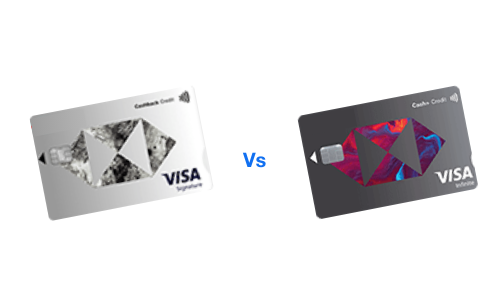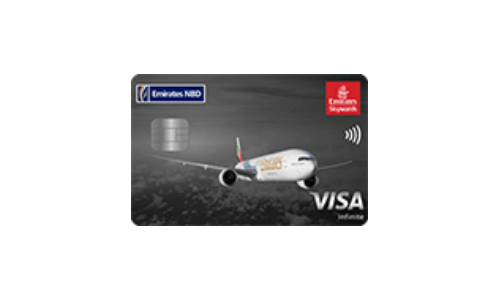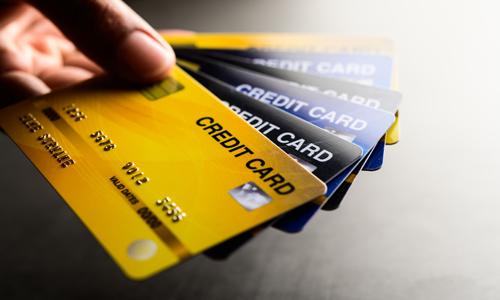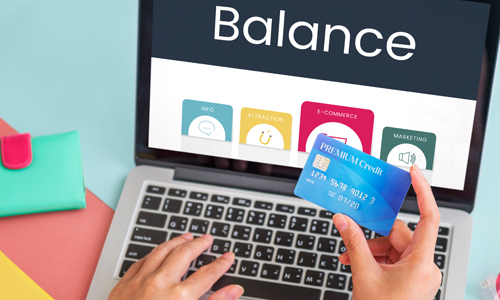Top 6 Best Payment Methods to Opt for in the UAE

In today's technologically advanced world, making payments has become as simple as making a few taps or clicks on your device. Whether you're shopping locally, online, splitting lunch with friends, or looking for good deals at a neighbourhood garage sale, you will find several payment methods for the same.
UAE residents can access various payment methods as per their requirements, with the available options including cash, cheques, cards, payment gateways, and so on. Considering the wide variety of methods of payment, making a decision on how to pay can be difficult. To help you there, we have compiled a list of the most popular payment methods in the UAE as well as their pros and cons so that you can make an informed choice.
What are Payment Methods?
Payment methods are simply how customers pay for products and services. For instance, when you use credit cards to make a payment, your chosen payment method here would be credit card.
With technological advancements, you can directly pay from your bank account for local transactions or go with PayPal for international transactions online. For other services, you probably may want to pay from your online wallet linked to your bank or debit/credit cards.
The major benefit of such multiple payment methods is that users have ample choices to make payments, which ensures flexibility and convenience for the same.
Let's go through each payment method and its key features one by one.
1. Cash
Cash is the most ancient and widely used method of payment in the UAE. For individuals who don not prefer any of the online or card-based payments, using cash for living expenses is ideal!
Let’s take a look at some of the advantages and disadvantages of using cash as a payment method:
Pros of Using cash as a Payment Method
- Cash payments eliminate extra or hidden fees
- This method of payment allows you to spend what you have in your pocket and avoids overspending
- If you are on a strict budget, paying with cash ensures that you stick to what you need and reduces impulse spending habits
- Your purchase will never have an outstanding balance with a cash payment method
Cons of Using Cash as a Payment Method
- As the Internet is generally a cash-free zone barring a few ‘cash on delivery’ providers, paying with cash can limit your shopping opportunities
- One of the most significant downfalls of paying with cash is that it doesn’t allow you to build or improve your credit Score
- Using cash as your payment method is usually tedious, as you would be required to perform manual recordkeeping to monitor your transactions
- Carrying excessive cash can make you a target for mugging and other such crimes. Furthermore, if you lose your wallet or purse, the probability of getting it back with all the money intact is generally on the lower side.
- Hotels, car rentals, and other services may specifically require credit cards or debit cards for booking
- Debit and credit cards offer a variety of offers for each spend – using cash as a payment method results in losing access to such rewards and discounts
2. Cheque
A cheque is a cashless payment method that makes transactions easier for users. Here, the drawer's bank account is debited, and the payee is credited with the drawn check amount. With digitalisation at its peak, cheques nevertheless remain the banking sector's backbone and are still used for many low and high-limit transactions.
Pros of Using Cash as a Payment Method
- You can use cheques to pay bills via email in some cases by simply writing the cheque and sending it by mail after scanning it
- A cheque is a safe payment method as you don't have to carry any money
- You can ask the concerned financial institution to stop payment on the cheque if it is stolen or lost, which makes it a safe and reliable method of payment
- Cheques help users keep track of their money, as all cancelled, returned, and accepted cheque lists are provided to them on a monthly basis
Cons of Using Cash as a Payment Method
- It is not a suitable payment method for small amounts
- Bank charges are levied on dishonoured cheques and additional chequebooks
- Depositing money through cheques is a time-consuming process
- Cheques are generally more susceptible to fraud as they can be forged and passed off as authorised cheques
- A few businesses don't accept cheques as a payment method
- Cheques have a longer processing time compared to most other methods
3. Credit Cards
A credit card is another method of payment for cashless transactions. The lending institution here determines the credit limit based on the applicant's credit history, credit score, and income stability. Once you make spending with your credit card and get the credit card bill at the end of the billing cycle, you must pay the amount in the specified repayment tenure to generally avoid interest. After this period, interest is applied to the outstanding balance.
The following are the pros and cons of using a credit card as your payment method:
Pros of Using Credit Card as Payment Method
- Credit cards provide easy access to credit. This means you can use your credit card for an expenditure and pay for it later.
- This method of payment gives you a chance to build up your credit score and boost your creditworthiness, which can help you in the future when availing of any loan
- Credit cards are packed with discounts, incentives, and offers. Each time you swipe your card, you can accumulate cashback, reward points, and other such rewards which can later be redeemed for discounts and offers.
- Credit cards make for a safe payment method. However, some credit cards offer additional protection in the form of insurance for card purchases that might be damaged, stolen, or lost.
Cons of Using Credit Card as Payment Method
- Credit cards have several charges that are easy to overlook and increase the overall expenses
- If you are unable to pay the bills by your billing due date, the amount is carried forward, and the interest is charged. As the interest on credit cards can often go high, it can also be an expensive payment method.
- While credit cards are generally safe, the increased usage of online payment systems has also increased the risk of credit card fraud
- If not managed responsibly, credit cards can easily lead to impulsive purchases
4. Debit Cards
Debit cards are issued by the financial institution with which you have your savings or current bank account. Debit cards provide immediate access to funds and can be used for online domestic and international purchases, and paying bills. Unlike credit cards, if you use a debit card as the payment method, the money deposited in your bank account is directly utilised for the transaction.
Discussed below are the major pros and cons of debit cards –
Pros of Using Debit Card as a Payment Method
- Swiping a debit card requires a PIN (Personalised Identification Number) that you can change at your convenience. Moreover, online payments via debit card require OTP linked to your mobile number. Both these aspects make debit cards a reliable and secure payment method.
- You can easily obtain a debit card by opening an account with a financial institution
- A debit card is usually an accepted payment method all over the UAE. You can use debit cards for cash withdrawals and online transactions
- Banks in the UAE offer various rewards and cashback offers for every purchase you make with your debit card
Cons of Using Debit Card as Payment Method
- The transactions and withdrawals are limited to the balance available in your bank account
- Banks charge customers processing fees for all transactions. While the charges may seem negligible, the deducted amount can be high when calculated as a whole.
5. Online Payment Methods
With online payment methods, transactions can be done if you have a debit or credit card or access to online banking facility. It facilitates online shopping and transfers funds from one bank account to another bank account. Online payment methods use secured payment gateways like Telr, Amazon Payment Services, cashU, CCAvenue, 2Checkout, PayTabs, Cybersource, and so forth.
Let’s discuss the advantages and disadvantages of using online payment methods in the UAE.
Pros of Using Online Payment Method
- Online payment methods are convenient and can be accessed without moving anywhere
- You can quickly transfer to the same or another bank account without delays
- Compared to other payment methods, only a small fee is charged when using your debit/credit card for online payments
Cons of Using Online Payment Method
- Online payment methods can often fail due to technical problems
- For offline purchases or sales, online payment methods are inconvenient
- Hackers can exploit online payment methods to steal account holders' information or money if proper safety measures are not followed
6. Mobile Wallets
A mobile wallet is a virtual wallet that stores information from debit cards, credit cards, loyalty cards, or coupons on a mobile device. This method of payment can be used to send and receive money by simply using mobile devices.
Mobile or digital wallets are highly secured and easy to access. Some of the top e-wallets in the UAE are as follows:
- Google Pay
- Apple Pay
- WePay
- Etisalat Wallet
- Emirates Digital Wallet
- Samsung Pay
- Payit
- PayPal
- AliPay
- emCash
Here are the major details and features of the major mobile wallets in the UAE –
- GooglePay: As one of the most widely used platforms in the UAE and around the world, GooglePay can be used as a payment method for making various purchases or paying bills. Currently, both iOs and android users can use GooglePay or GPay, which is one of the most secure payment methods in the UAE with the feature of encrypted transactions.To use GPay, all you need to do here is register your bank card details with the platform.
- Apple Pay: This payment method is compatible with Apple devices like iPhones and iPads. You can quickly pay bills with a contactless reader and make payments after holding your phone next to the terminal. The passbook of Apple Pay stores your credit or debit card information, making the process simple and quick.
- PayPal: PayPal is another online payment method offering various rewards and cashback to users. Notably, PayPal allows users to send money anywhere in the world without any transaction fee. To transfer money via PayPal, you can download the app from the Google Play Store, Apple App Store, or Windows Phone Store and register on it.
Pros of Using Mobile Wallets as Payment Method
- You can make a transaction through mobile wallets in the UAE at your fingertips without leaving the comfort of your home
- Digital or mobile wallets let you limit the number of cards that you carry when you travel.
- The information of different cards is stored in a mobile wallet in one place, allowing you to choose from various cards when making a payment
- Mobile wallets enforce a secure method of payment by using real-time OTPs or payment codes generated at the time of payment
- Several mobile wallet platforms incorporate budgeting features and spending alerts when a user’s spending crosses the specified threshold
Cons of Using Mobile Wallets as Payment Method
- As mobile wallets are only accessible through phones, you won’t be able to access the wallet in case your phone battery is completely discharged or your device goes missing
- Being a victim of digital hacking is one of the risks of owning a digital wallet. While hackers can gain access to your accounts in case of inadequate implementation of safety measures, a risk of misuse is also there if your phone is lost or stolen.
Wrapping Up
A wide range of opinions can be found with respect to payment methods, especially for non-traditional ones like credit and debit cards, mobile wallets, online payments, and more. However, with increasing penetration of technology in each aspect of life, these methods of payment are here to stay and will continue to change over time.
It must be noted that the risk of online fraud and hacking has also increased as everything is moving digital. However, with a few safety precautions (like never sharing your PINs and passwords, avoiding suspicious websites, and more), one can enjoy seamless transactions with cards, wallets, and more.
Finally, as we saw in the article, different payment methods are suitable for different types of transactions. For this reason, it is highly recommended to be acquainted with all of them and use them as per your requirements after thorough research.
Related Links
More From Credit Cards
- Recent Articles
- Popular Articles
















